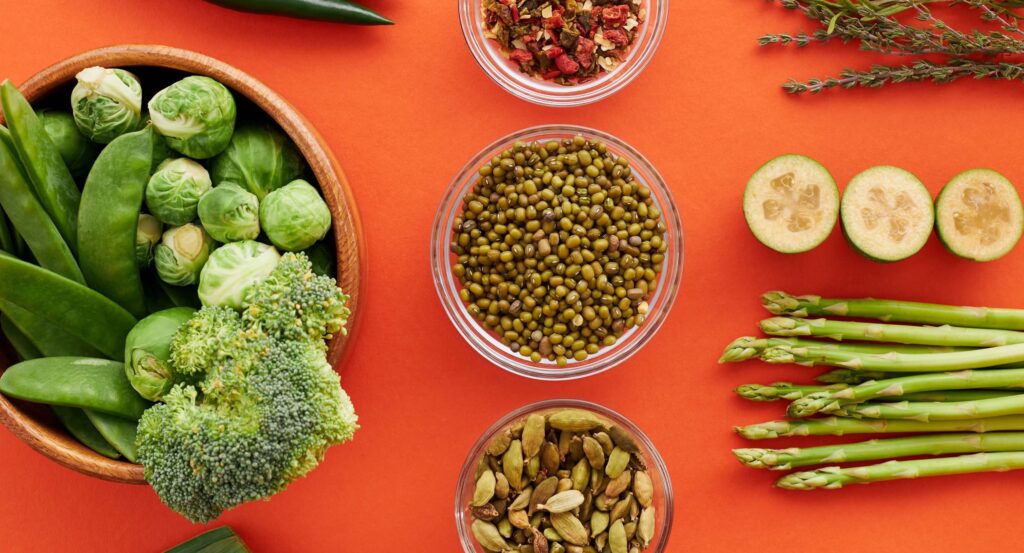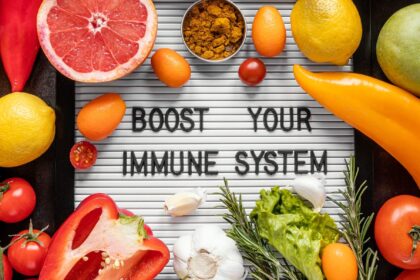Vitamin K is a family of vitamins that are important for blood clotting, and has other health benefits of vitamin K. Moreover, it is also important for bone metabolism and blood calcium regulation. It is fat-soluble vitamers found in foods and marketed as dietary supplements. Further, it support bone health, brain health, heart health, and more. Vitamin K1 and K2 are the two most important compounds are vitamins, and Vitamin K1 is found naturally in leafy green vegetables and some other vegetables, while vitamin K2 is mainly found in meats, cheeses and eggs, and is synthesized by bacteria. This article will appraise, what Vitamin K is, why it is essential to the body, and what benefits of vitamin K.

What is vitamin K?
Vitamins K and K2 are essential nutrients that help keep your blood clotting and bones healthy, and these are the two main forms of vitamin K. Moreover, vitamin K1 is found in green leafy vegetables and in fermented foods, while vitamin K2 is found in animal products. Vitamin K helps activate certain proteins that help blood clot and keep your bones healthy. The body needs Vitamin K to produce Prothrombin, which is a protein and blood clotting factor. People who take blood thinners like warfarin and Coumadin should not consume additional Vitamin K without first consulting their doctor. Vitamin K deficiency is rare but in severe cases it can increase the clotting time and cause excessive bleeding.
Why do people take vitamin K?
Vitamin K deficiency is unusual, however, individuals may be at increased risk if they: have a digestive tract disease, take medications that affect vitamin K absorption, are severely underweight, or consume alcohol excessively. In these cases, vitamin K supplements may be recommended by a healthcare provider. Although vitamin K deficiency is uncommon in adults, it is highly common in newborns, and is usually treated with a single injection.
What are uses of vitamin K?
Good sources of vitamin K are kale and cruciferous vegetables. When you eat it, the bacteria in your large intestine convert it into vitamin K2, which you absorb in your small intestine and store in your fatty tissue and liver. If you don’t have vitamin K, your body can’t make prothrombin (a clotting factor that helps blood clot and break down bone). The right amount of vitamin K for your body depends on your age and gender, usually for women, 90 mcg (mcg) and for men, 120 mcg per day is recommended.
What are the health benefits of vitamin K?
Vitamin K is really important for your health, and it benefits the body in various ways.
- Blood clotting – It mainly helps for blood clotting factors so you don’t bleed too much, and it helps your wounds heal properly.
- Bone health – If you’re looking to keep your bones strong and healthy, it’s important to make sure you’re getting enough vitamin K. it helps your bones stay strong and which can help keep you from breaking bones and getting osteoporosis.
- Cognitive health – Higher vitamin K levels have been linked to better memory performance in older adults. A study found that those people who had the highest vitamin K1 levels in their blood had the best verbal memory.
- Heart health – If you get enough vitamin K, it can help keep your blood pressure low and prevent mineralization, which is when minerals build up in your arteries. This helps your heart pump more blood through your body. Vitamin K is also known to reduce the risk of stroke.

What foods are high in vitamin K?
Vitamin K is found naturally in dark leafy greens such as kale, spinach, Swiss chard, asparagus, collard greens, and you can also get it from meat, milk, eggs, and fermented soy beans.
Vitamin K2 is also found naturally in cruciferous vegetables like broccoli and Brussels sprouts. Asparagus and green peas are also good sources of vitamin K2.
You can also meet your daily requirement with foods that have lesser amounts of vitamin K, such as Eggs, Strawberries and Meat like liver.
What are the symptoms of vitamin K deficiency?
Vitamin K deficiencies can result in a variety of health conditions, predominantly when it comes to blood clotting disorders and bone disorders. Symptoms of vitamin K deficiency may include light bruising and long-term bleeding from cuts or wounds. In more severe cases, excessive bleeding may occur in the digestive tract or in the nose. Vitamin K deficiency can also have a negative effect on bone health, possibly increasing the likelihood of fractures and bone loss. If a vitamin K deficiency is suspected, it is important to seek medical attention for accurate diagnosis and treatment.
What are the risks of taking vitamin K?
Side effects of oral vitamin K at recommended doses are rare.
Interactions – Many drugs can interfere with the effects of vitamin K. They include antacids, blood thinners, antibiotics, aspirin, and drugs for cancer, seizures, high cholesterol, and other conditions.
Risks – If you’re taking vitamin K supplements, you should only do so if your doctor tells you to. Coumadin users who are taking it for heart issues, blood clots, or other conditions need to be careful about what they eat to make sure they’re getting enough vitamin K. They should not take vitamin K supplements unless their doctor tells them to.
The most effective way to make sure you’re getting enough is to eat a balanced diet that includes plenty of fruits and vegetables. You should only take vitamin K supplements if you’re experiencing vitamin K deficiency, and only then under your doctor’s supervision.

Conclusion
Vitamin K is a vital nutrient that plays an important role in the health of the body. It is essential for the proper clotting of blood, the prevention of excessive bleeding, and the successful healing of wounds. Additionally, Vitamin K promotes bone health by aiding in the mineralization of the bones and decreasing the risk of fracture and osteoporotic disease. Consuming foods rich in vitamin K can help to ensure adequate intake of this nutrient for overall health.
FAQ
How much vitamin K do I need daily?
The amount of vitamin K you need to take each day depends on your age, gender, and stage of life. Adults should aim to get around 90-120 mcg of vitamin K each day, while women should aim to get between 120 and 150 mcg. Infants, kids, and pregnant or breastfeeding women have different daily intakes, so it’s important to talk to your doctor about what’s best for you.
Can vitamin K interact with medications?
Yes, vitamin K interacts with certain medications. Anticoagulants such as warfarin (coumadin) are known to interact with vitamin K. Vitamin K is essential for blood clotting. Consuming too little or too much vitamin K via diet or supplements can affect the effectiveness of anti-coagulants. It is important for anticoagulant patients to maintain a consistent vitamin K intake and to inform their healthcare provider of dietary changes or new vitamin K supplements to effectively manage potential interactions. Always consult your healthcare provider before making significant dietary or medication changes.
Is vitamin K safe during pregnancy?
Yes, taking vitamin K during pregnancy is usually safe as long as you stick to the recommended daily intake. It’s important to get enough vitamin K during pregnancy to help your blood clot properly, both for you and your baby. Make sure you’re getting enough from your diet, and always talk to your doctor before taking any supplements.
What are the differences between vitamin K1 and vitamin K2?
Vitamin K1 and Vitamin K2 are two different types of vitamins that have different roles and functions in the body. Phylloquinone, or vitamin K1, is mostly found in plant foods, especially dark green leafy greens. It’s important for blood clotting and helps keep your bones healthy. Vitamin K2, or vitamin K2, is mostly from animal sources and fermented foods. It helps your bones and teeth absorb calcium, which is important for overall health.
Reference Used:
https://www.medicalnewstoday.com/articles/219867
https://en.wikipedia.org/wiki/Vitamin_K
https://www.webmd.com/vitamins-and-supplements/supplement-guide-vitamin-k





